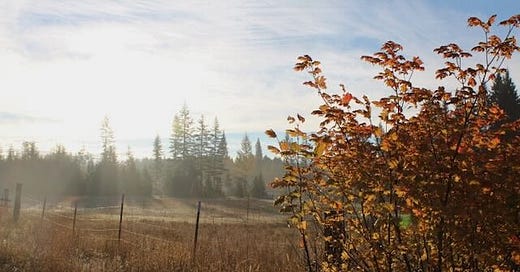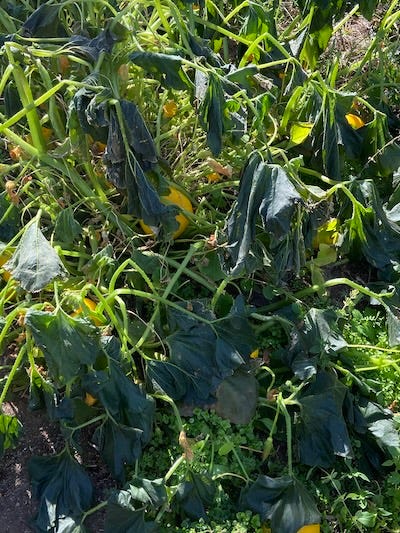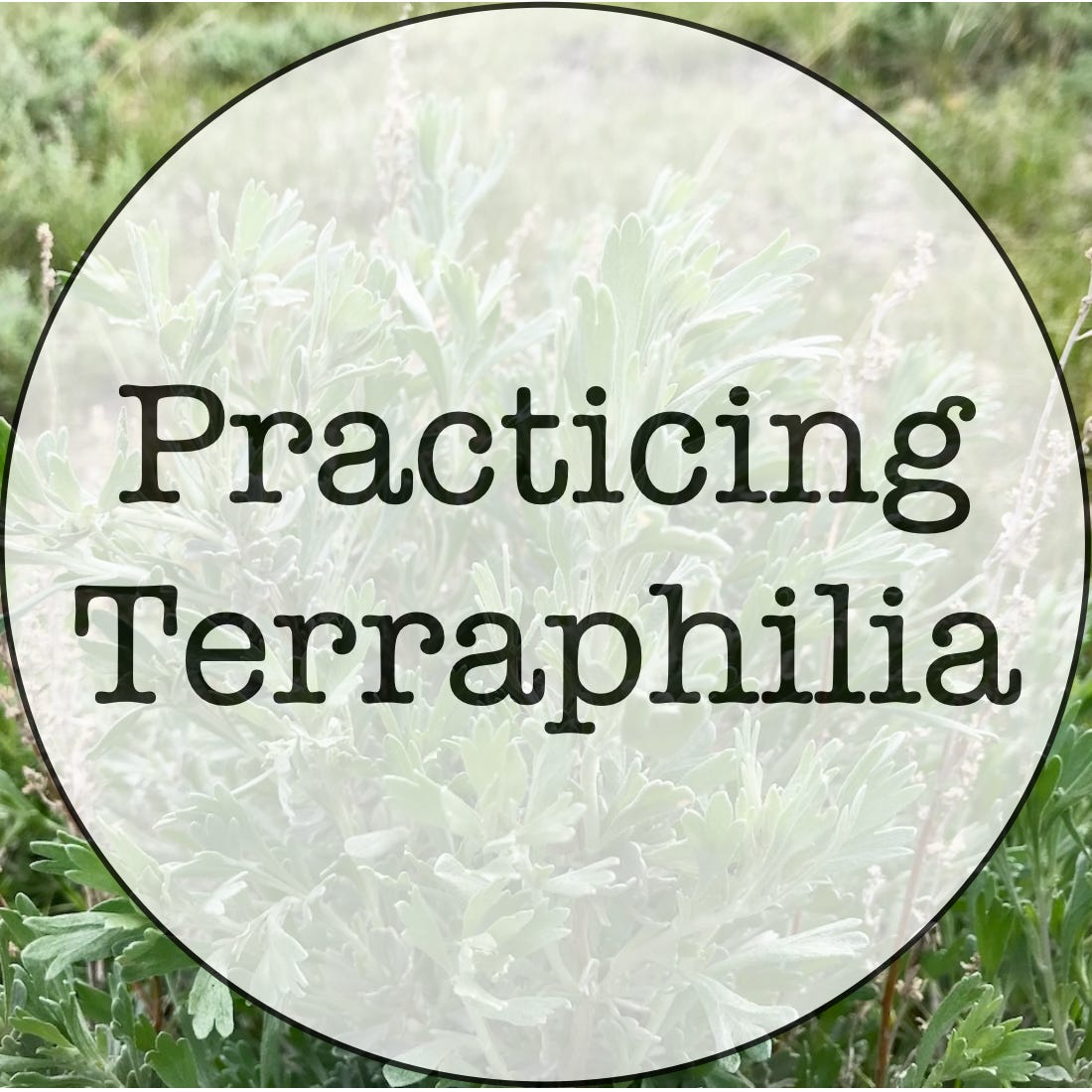Autumn here in the northern Cascade foothills has been delightful, with highs in the 70s, mostly clear skies, and sunlight arriving later and leaving earlier each day. An early riser, I step outside at 5 a.m. and look up at the dark skies, silently greeting those no longer with me and giving thanks to the wonder of ancient stars, the faint ghost of the Milky Way, and the moon’s phases.
The summer garden party is officially over. On September 29th, the temperature dropped to 29F, and frost settled in my garden, wilting and blackening the leaves of summer and winter squash, potatoes, bell, peppers, and my last basil plant.
This year, the party started slowly: I gambled and planted my tomato starts a week before our USDA-recommended average last freeze date, and a late spring freeze killed them. June was cool and rainy, which happens enough in WA to have earned the nickname “Juneary.” California gray squirrels (called diggers), a non-native species, dug a den under a flower bed and had two kits. They discovered my vegetable garden, devoured my lettuce bed in one night, and munched on my spring crop of ripened strawberries. We trapped and relocated them to a nearby forest.
Several of my winter squash plants died, and the remaining ones produced only one or two fruits. A friend gave me two winter squash plants without labels, and they produced huge white fruits with green stripes. All she remembered was that they were Italian heirlooms. The summer lemon squashes became the annoying party guests who would not leave—they kept producing little balls of yellow squash. I have a winter’s supply of frozen burrito fillings made with squash, potatoes, onion, bell, and jalapeno peppers.
Peppers were the party's celebrities: pounds and pounds of jalapenos, bells, anaheims, and shishitos. They have been transformed into pepper relish, candied and fermented jalapenos, and frozen for winter use.

The alliums were well-behaved and offered abundant gifts—garlic for a year, leeks for the winter, and onions for the next month or two. Potatoes had a good time, leaving behind pounds of spuds.
Tomatillos, tomatoes' hardier cousins, were turned into six pints of salsa verde. Pickling cucumbers were converted into relish and pickles. I didn't grow tomatoes for the first time in years; instead, I purchased 40 lbs from the farm store and made salsa and spicy chutney.
My fall-producing raspberry patch provided its usual abundance, joining blueberries and cherries in the freezer and 12 half pints of raspberry jam in the pantry. Fifteen pounds of apples from a friend wait to become applesauce, and their peelings and cores fermented into vinegar.
Basil became pesto cubes, and elderberries were steeped as tincture and cordial and dehydrated for syrup and teas. Mallow roots were chopped and dried. As part of a firewise strategy, the 14-year-old wooden herb beds surrounding my house have been deconstructed, the plants potted for winter storage, and the soil moved. One of my winter projects is to design a new herb garden.
Seeds are the last guests to leave the garden party, and seed saving is a tedious task best saved for evenings and good movies.

With a bit of a garden hangover, I am cleaning up and prepping for winter: emptying beds, weeding, preparing the paths for a thick layer of bark chips, and topping the beds with a thick layer of compost. I want to extend my winter squash bed, which involves laying hardware cloth to keep out the determined pocket gophers and then shoveling soil and compost. The rain arrives in a few weeks, and then the snow, so I am pushing to finish the garden work.
I am tired and waiting for the work to be done. This is why I look forward to winter; it’s my time for rest and renewal. But I forget all this by following April when I complain that the snow wasn’t melting fast enough and I am itching to get back into the garden.
My passion for gardening is similar to my life experiences: an emotional rollercoaster of hope, birth, death, living, successes, failures, surprises, awe, frustration, imagination, and gratitude.
It’s this phase of the garden cycle that I typically consider when I wonder why I dedicate so much energy and time to growing food and herbs when I don’t have to. Growing plants has become my passion and reshaped my life in ways I could never have predicted.
My fascination with plants didn’t start until I was in my mid-30s, and it has been a path of continuous creative and scientific exploration.
I am not alone in my plant obsession, and I want to introduce you to a few writers who share my passion.
I discovered Susan Wittig Albert in the 1990s through her China Bayles series of plant-themed mysteries. A prolific author of books, her Substack site offers her thoughts on diverse topics, and her writing is creative, thoughtful, and personable. She is also a bit of a late bloomer, publishing her first book at 52 and now at 85, and she continues to write and publish.
Recently, while reading one of Susan’s articles, I “met” Leenie, a folk/home herbalist who shares her beautifully illustrated and written herbal journals on Substack.
I discovered Ashley’s Practical Self Reliance website several years ago and she is now on Substack. A homesteader, she offers SO MUCH practical information on becoming more self-reliant. How-tos, product reviews, recipes galore, herbal medicince, growing and preserving food, etc.
Susan’s Substack reflects on her dedication to the Earth and its inhabitants. Her weekly gratitude post is a reminder to sit for a moment and take in the abundance, the landscape, and the wonder.
Thank you for being here. All of my posts are free, but if you’d like to support my work, you can do so by:
Liking and restacking this post so others are encouraged to read it.
Share this post via email or on social media.
Taking out a paid subscription to this Substack.
Do you garden? Share your experiences.











I appreciated this piece, Sue, as a vegetable gardener for decades.
We haven't had a frost here yet in Quebec, but I pulled up all of the squash plants yesterday, made way too productive in greenery from the composted horse manure that our helper promoted. But I did harvest a variety of squash, not in abundance, thankfully, so that's fine.
It's not really warm enough here to grow delicious tomatillos, but I tried them again this year, as an available nursery transplant. Curious, along with more tomato transplants than I've ever seen. I won't be growing them again, sticking to Swiss chard, beets, pole beans, and compact squash!